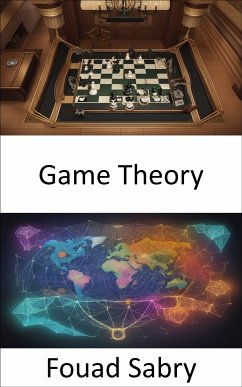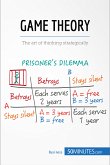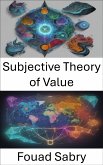What is Game Theory
Game theory is the study of mathematical models of strategic interactions among rational agents. It has applications in many fields of social science, used extensively in economics as well as in logic, systems science and computer science. Traditional game theory addressed two-person zero-sum games, in which a participant's gains or losses are exactly balanced by the losses and gains of the other participant. In the 21st century, game theory applies to a wider range of behavioral relations, and it is now an umbrella term for the science of logical decision making in humans, animals, as well as computers.
How you will benefit
(I) Insights, and validations about the following topics:
Chapter 1: Game theory
Chapter 2: Evolutionarily stable strategy
Chapter 3: Nash equilibrium
Chapter 4: Chicken (game)
Chapter 5: Coordination game
Chapter 6: Centipede game
Chapter 7: Strategy (game theory)
Chapter 8: Non-cooperative game theory
Chapter 9: Backward induction
Chapter 10: Symmetric game
Chapter 11: Folk theorem (game theory)
Chapter 12: Correlated equilibrium
Chapter 13: Outcome (game theory)
Chapter 14: Peyton Young
Chapter 15: Subgame perfect equilibrium
Chapter 16: Quantal response equilibrium
Chapter 17: Epsilon-equilibrium
Chapter 18: Cooperative bargaining
Chapter 19: Jean-Francois Mertens
Chapter 20: M equilibrium
Chapter 21: Berge equilibrium
(II) Answering the public top questions about game theory.
(III) Real world examples for the usage of game theory in many fields.
Who this book is for
Professionals, undergraduate and graduate students, enthusiasts, hobbyists, and those who want to go beyond basic knowledge or information for any kind of Game Theory.
Game theory is the study of mathematical models of strategic interactions among rational agents. It has applications in many fields of social science, used extensively in economics as well as in logic, systems science and computer science. Traditional game theory addressed two-person zero-sum games, in which a participant's gains or losses are exactly balanced by the losses and gains of the other participant. In the 21st century, game theory applies to a wider range of behavioral relations, and it is now an umbrella term for the science of logical decision making in humans, animals, as well as computers.
How you will benefit
(I) Insights, and validations about the following topics:
Chapter 1: Game theory
Chapter 2: Evolutionarily stable strategy
Chapter 3: Nash equilibrium
Chapter 4: Chicken (game)
Chapter 5: Coordination game
Chapter 6: Centipede game
Chapter 7: Strategy (game theory)
Chapter 8: Non-cooperative game theory
Chapter 9: Backward induction
Chapter 10: Symmetric game
Chapter 11: Folk theorem (game theory)
Chapter 12: Correlated equilibrium
Chapter 13: Outcome (game theory)
Chapter 14: Peyton Young
Chapter 15: Subgame perfect equilibrium
Chapter 16: Quantal response equilibrium
Chapter 17: Epsilon-equilibrium
Chapter 18: Cooperative bargaining
Chapter 19: Jean-Francois Mertens
Chapter 20: M equilibrium
Chapter 21: Berge equilibrium
(II) Answering the public top questions about game theory.
(III) Real world examples for the usage of game theory in many fields.
Who this book is for
Professionals, undergraduate and graduate students, enthusiasts, hobbyists, and those who want to go beyond basic knowledge or information for any kind of Game Theory.
Dieser Download kann aus rechtlichen Gründen nur mit Rechnungsadresse in A, B, BG, CY, CZ, D, DK, EW, E, FIN, F, GR, H, IRL, I, LT, L, LR, M, NL, PL, P, R, S, SLO, SK ausgeliefert werden.









